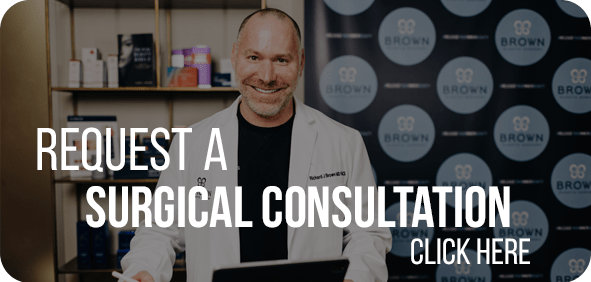Why it’s Important to Tell Your Plastic Surgeon About Health Issues
Cosmetic surgery can be a wonderful way to improve and enhance your self image, but as with any surgery, there are risks involved. Some conditions could make it harder for your body to recover after surgery, while certain medications could interfere with healing and pain management. Dr. Richard J. Brown will always consult with his patients to determine whether they are a candidate for plastic surgery, and it is important to be open and honest about any health issues you may have at that time.
Hematoma, or excess bleeding, is always a risk during surgery. Blood thinners, medications that contain aspirin, or other anticoagulants could all increase health risks associated with bleeding, and must be discontinued at least two weeks before undergoing surgery. Even some vitamins and herbal supplements could increase your risk of bleeding. Be sure to discuss any conditions and medications with Dr. Brown before deciding on a surgery.
Related: Why You Should Talk to Your Doctor About Your Medications Before Your Surgery
Your body may be more likely to develop an infection during or following your surgery if you have a compromised immune system due to chemotherapy or an immune disorder. It is important to consult with a Board Certified Plastic Surgeon like Dr. Richard J. Brown to determine whether plastic surgery is right for you under these conditions.
If you are receiving breast or facial implants, there is a small chance your body could react negatively. Though these reactions are rare, Watch for abnormal swelling, tenderness, or discharge from the injection site, as these could be signs of complications. Discuss any allergies with your plastic surgeon when considering treatment options.
Even unhealthy lifestyle habits could affect the outcome of your surgery. Smokers are at an increased risk of necrosis, or tissue death, following surgery because smoking decreases blood supply to some tissues. Smoking can also lead to breathing complications during anesthesia. Dr. Richard J. Brown and his staff urge you to stop smoking as soon as possible, and discuss any risks that smoking might pose when considering plastic surgery.
If you have any questions about whether a plastic surgery is compatible with your medical condition, give us a call at 480-568-3804 or contact us through our website.



